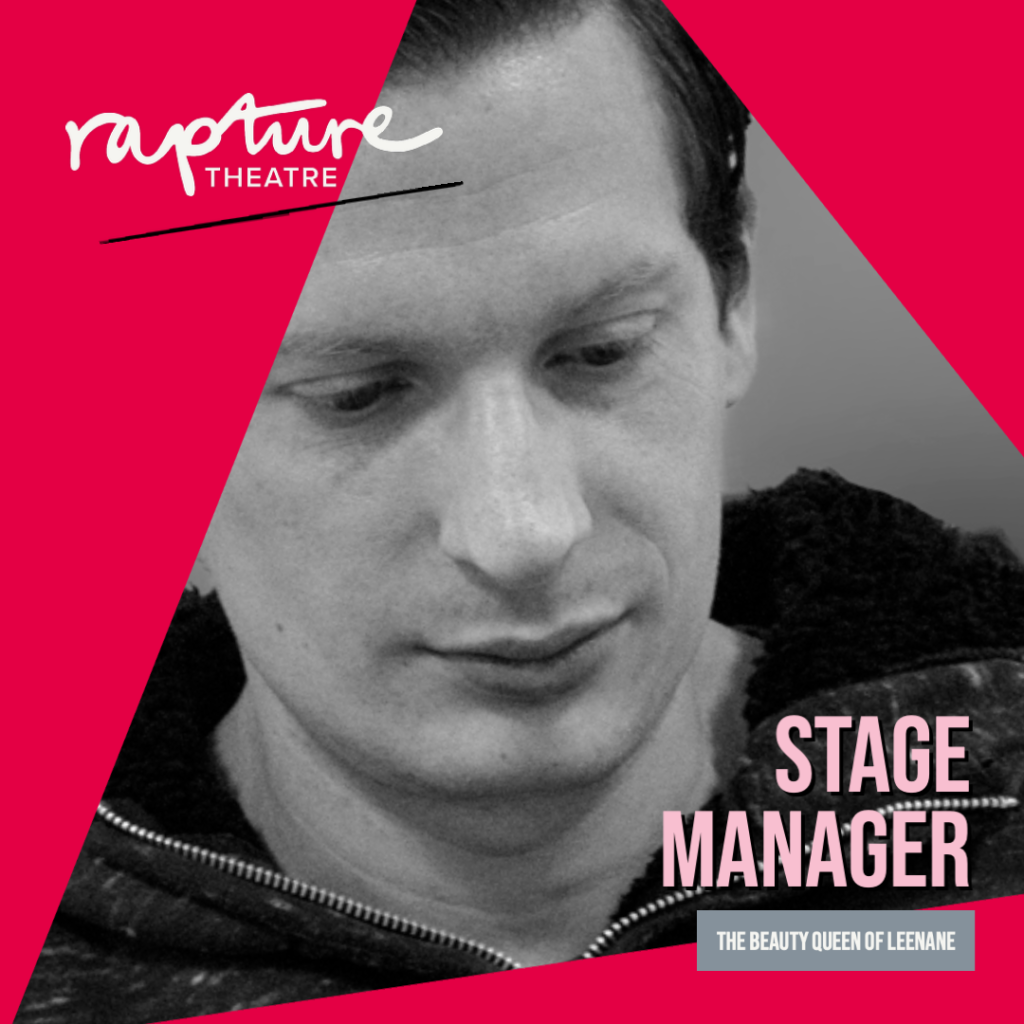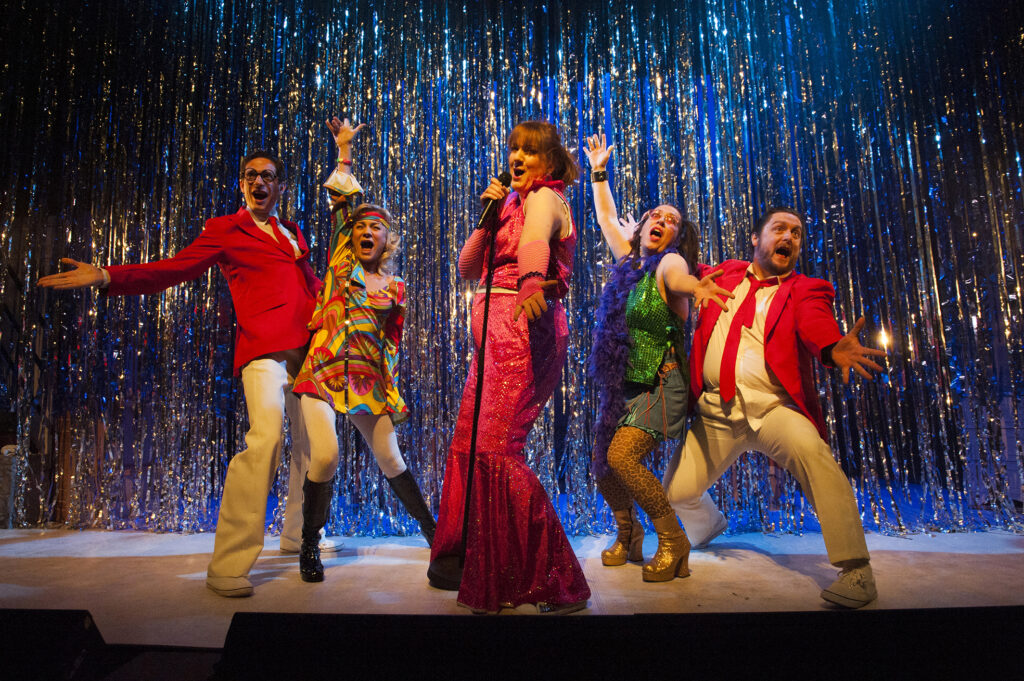Interview by Geraldine Emans

In this interview, I had the pleasure of talking to Steven Scott-Fitzgerald who is the Stage Manager for Rapture Theatre’s The Beauty Queen of Leenane.
What’s a typical day in your job like? What do you do on a daily basis?
Currently, I am doing two jobs in the role I have now. I am both the Stage Manager and the Deputy Stage Manager (DSM) or rather “Stage Manager – On the Book” which covers both roles. The “Book” is a special version of the script that I have where I can add notes to the script such as adding in lighting cues or sound cues.
The “On the Book” side of my role involves me being in rehearsals every day and organising all aspects of the rehearsals. I do the rehearsal schedule and inform the actors on which scene they will be working on. I set up everything we need for starting the day. During rehearsals I have the script in front of me and I prompt the cast if they need a line.
I also collate everything we need that comes up in rehearsals through generating a rehearsal report which is a spreadsheet of different categories: sound, lighting, costume, set, production, stage management. All these different elements require individual updates that are then shared with the creative team. This might take the form of a note to the costume designer for specific shoes required for a rainy scene. For example, we have water off stage in this production so I would need to let the costume designer know what we need for that or if a costume change might be required.
I am also responsible for telling the stage management team what props we need. I compile a list of props or sometimes feedback to the stage management team that a prop didn’t work. I make sure that everyone has all the information that they need.
As Stage Manager, I am also responsible for all elements of the set, maintaining it and building it in every venue, and adapting this to each venue. I also take care of the props, maintain these and set them up. I am also responsible for the welfare of the actors so if anything comes up health and safety-wise, I take care of it.
During the show, I sit in a corner and tell everyone when light cues and sound cues are happening. I am also responsible for operating the sound in this show.

How did you become interested in the job you do now? What drew you to the field?
I have done theatre forever. I joined an amateur group when I was seven years old and started off wanting to be an actor. But I have had a lot of experience with Stage Management from an early age because my parents ran the youth theatre group that I was a member of. My mum made the costumes for it and my dad built the sets and I would help both of them. I learned how to do costumes, props and set as well as being on the stage. So, I have always had a passion for both acting and stage management.
I later trained as an actor when I studied theatre at college, and it was an acting course that had technical and stage management elements. While in my first year at college, our Stage Manager became too ill to continue and because I was the most experience out of my classmates, they asked me to be the Stage Manager for that first show. I remained the Stage Manager for all the subsequent productions throughout my years at college.
In my final year of college, Michael (Rapture’s Founding Director) offered me a job as an Acting Stage Manager (an on and off-stage job) in the production Shang-A-Lang where I played the role of a red coat. Ever since then, I have fallen into doing both acting and stage management where I have straddled the two, side by side.

Which qualifications did you need to get your job, or would someone need to get a job like yours?
I went in the back door of stage management. Traditionally, you would need to complete a 3-year degree or diploma at college or university in either Stage Management or Technical Theatre.
To have an on and off-stage role, it would be best to attend a drama course that teaches a lot of technical elements of theatre. The course I attended was an HND and I only needed 2 or 3 Highers to be accepted on that course, you don’t need to go to university. If you are motivated to learn things off your own back, and happy to make the extra effort, you can find work in this field after completing an HND course.
What skills have you found to be vital to your job? Which skills help you do your job most effectively?
Communication skills are probably the most important in my role. An ability to pass information on clearly and efficiently. Organisation is really important because of the spreadsheets, running lists and “The book” where I need to organise all cues in a really clear way.
Theatre is also really tough work and long days so having good stamina or a good level of fitness to get through the days is important. Our technical week especially can sometimes be 11-hour or 12-hour days which is hard going but very rewarding.
What is the best part of your job and why?
I enjoy all of it! Even the hard, long days because it’s fun! It’s hard to believe that what I do and the fun I have is an actual job. I get to sit in a rehearsal room and be creative and be involved in the creative process. I love rehearsals because you’re creating, and you have all these different people contributing to make something really special. Then there is putting on the performance, when the creation that you are part of is put in front of an audience – who hopefully really like it. That approval is exhilarating.

